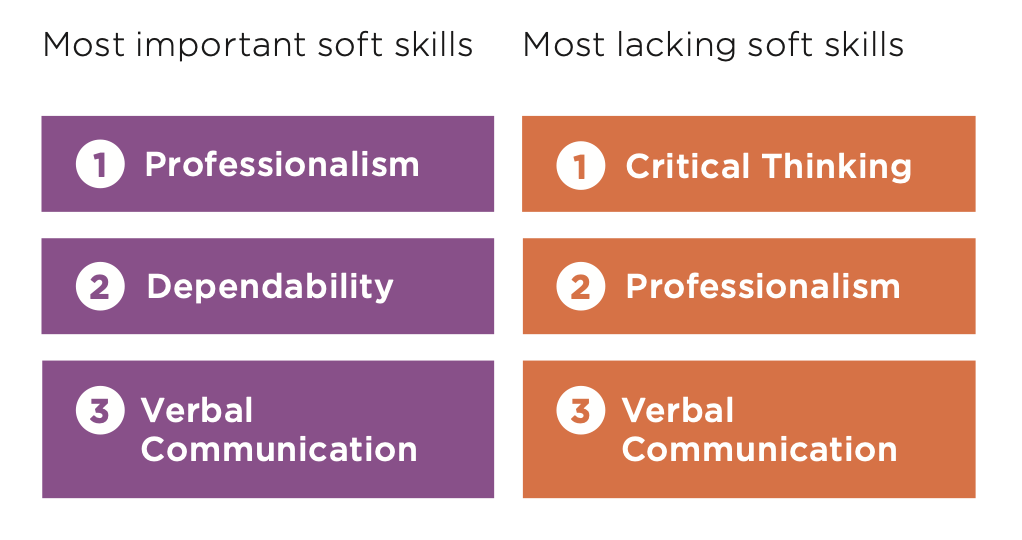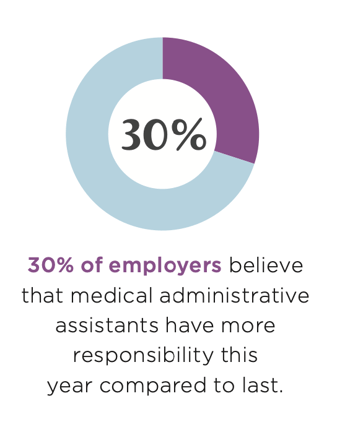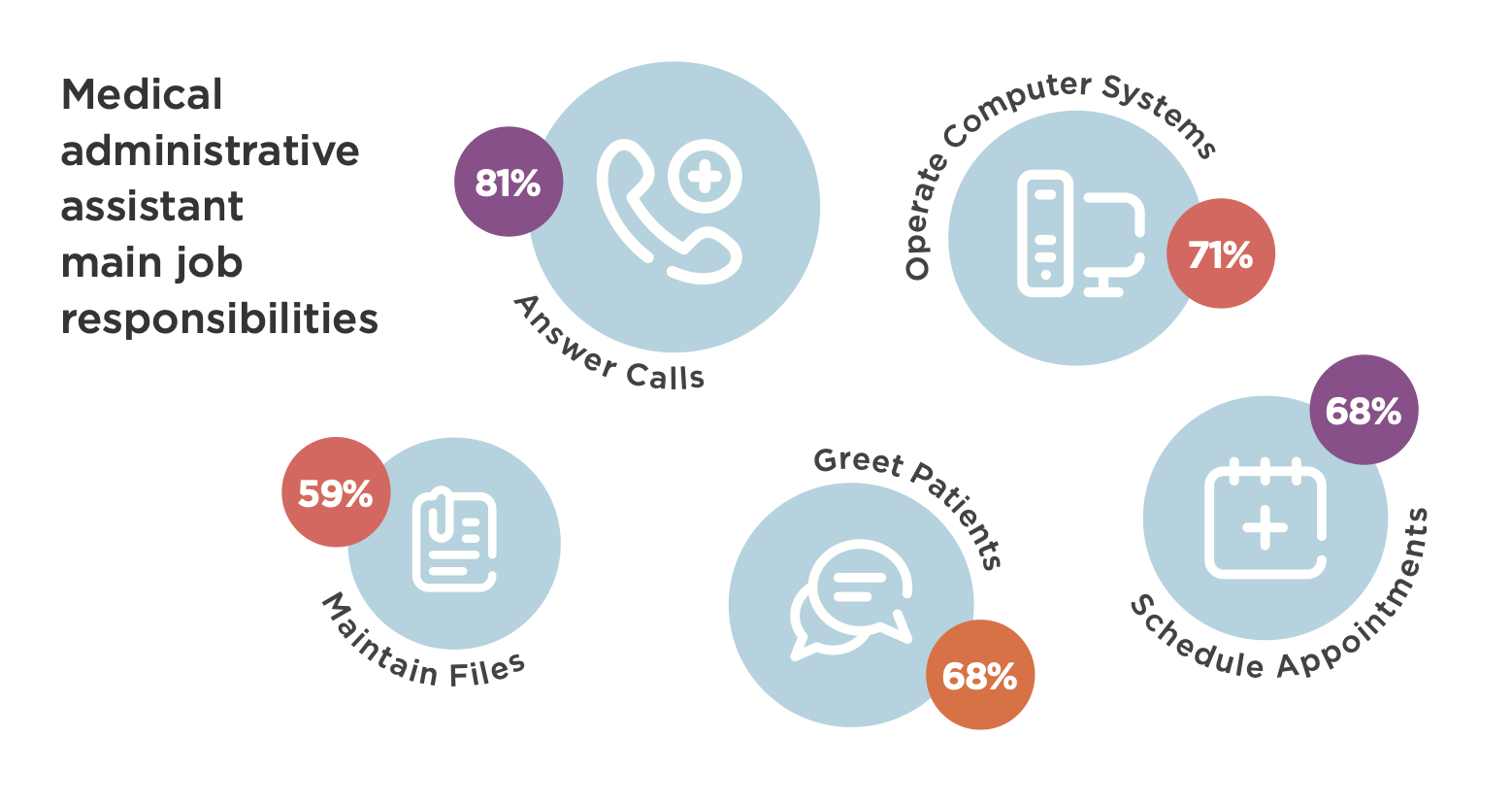Medical administrative assistants keep healthcare offices running smoothly. They interact often with both healthcare professionals and patients, making soft skills essential. , According to our recent survey of employers for the 2020 Industry Outlook. the top three most important soft skills for medical administrative assistants are professionalism, dependability, and verbal communication.
Keep reading to discover why these skills are important, and how you can work to improve upon them to assist your career.

When are these soft skills needed in the role of the medical administrative assistant?
Medical administrative assistants are often the first person a patient interacts with at their visit. This interaction can make or break the patient experience. Here are some ways the top three soft skills come into play in this role.
Professionalism: Picture this. You walk into a healthcare office. The medical administrative assistant doesn't acknowledge you. His appearance is disheveled, and he's eating a snack at the desk while gossiping with a co-worker about a patient who visited earlier. Does that person seem professional? Would you feel comfortable in this environment? It's important to exude professionalism to give a positive first impression and help patients feel welcome and in good hands.
Dependability: In smaller healthcare offices, it's especially essential for medical administrative assistants to be timely. You never want a patient to come into the office without a greeting! Additionally, you need to be reliable to both patients and the entire healthcare team. As a central role, you help keep things running smoothly and efficiently for everyone.

Verbal communication: Communication skills are important in healthcare, especially when you're the first to interact with a patient. You need to have strong verbal communication skills in order to make patients feel comfortable, collect essential information, and answer any questions or concerns that patients may have.

Why are these soft skills important?
Medical administrative assistants need to have hard knowledge and skills, which can be proven through certification. However, soft skills are also essential and help make you a valued resource to patients, a strong team member, and a cherished employee.
More than 93% of employers feel that health professionals do not have adequate training on soft skills, according to our 2017 access™ job readiness research report. If you want to work toward career goals, or stand out among other job applicants in a job search, developing soft skills can help you access a better future.
Can soft skills be learned?
Soft skills such as professionalism, dependability, and verbal communication can absolutely be learned! Whether you're just starting out in your medical administrative assistant career, or you're a seasoned professional who's striving for professional and personal growth, improving your soft skills can help you achieve your goals.
NHA's PersonAbility™ program helps allied health professionals like billing & coding specialists learn, practice, and develop essential soft skills. In this online program, you can learn skills to improve skills such as communication, professionalism, and develop your personal brand.


